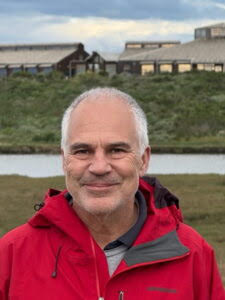Dr. Dimitris Menemenlis | Moss Landing Marine Labs, SJSURF
Presenting: "Ocean fronts, eddies, and internal waves in numerical models and SWOT"
Hosted by: Physical Oceanography Lab
MLML Seminar | September 23rd, 2025 at 4pm (PDT)

The ocean is the climate's largest reservoir of heat, freshwater, and carbon. Therefore, in order to understand and predict the impact of natural and anthropogenic perturbations on the climate system, we need to understand and predict the exchange of heat, freshwater, carbon, and other properties between the global ocean and the atmosphere. The driving hypothesis of my talk is that submesoscale ocean motions (<50 km), both balanced and unbalanced, play a key role in air-sea exchanges and vertical property transports in the ocean. To evaluate this hypothesis, we can use a set of tools that have become available during the past decade, namely (1) submesoscale and internal-wave admitting global-ocean simulations and (2) observations obtained by the Surface Water and Ocean Topography (SWOT) mission, which recently completed the second of its 3-year science orbit. I will describe some completed and ongoing studies that are using the aforementioned tools to study the impact of submesoscales on ocean circulation and climate.
Dr. Dimitris Menemenlis

